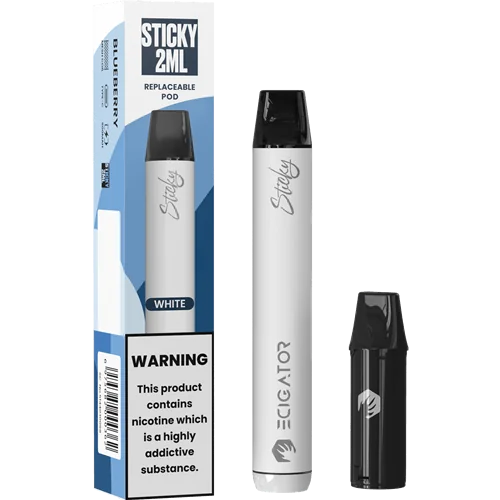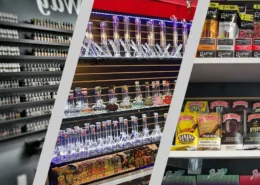Operating Costs of Running A Vape Shop Business
Launching a vape shop is an exciting venture, but it’s far more complex than simply stocking shelves with the latest e-liquids and devices. To succeed in this competitive industry, shop owners must have a firm grasp on the various operating costs that can make or break their business. This comprehensive guide delves into the nitty-gritty of vape shop finances, providing you with the knowledge to make informed decisions and maximize your profitability.
Whether you’re a seasoned vape shop owner looking to optimize your operations or an aspiring entrepreneur considering entering the market, this guide will equip you with the insights you need to navigate the financial aspects of running a successful vape shop.
Breaking Down the Operating Expenses: A Detailed Look
Running a thriving vape shop involves managing a diverse range of expenses. Let’s dive deep into the typical costs you can expect to encounter:
| Expense Category | Average Annual Cost (USD) |
|---|---|
| Rent and Utilities | $24,000 – $60,000 |
| Inventory and Wholesale Products | $120,000 – $600,000 |
| Employee Salaries and Wages | $240,000 – $600,000 |
| Insurance Coverage | $1,000 – $5,000 |
| Marketing and Advertising | $12,000 – $60,000 |
| Legal and Professional Fees | $1,000 – $5,000 |
| Point-of-Sale System and Technology | $1,200 – $6,000 |
| Regulatory Compliance and Licensing | $1,000 – $5,000 |
| Equipment Maintenance and Repairs | $500 – $2,000 |
| Total Annual Operating Costs | $400,700 – $1,343,000 |
Now, let’s explore each of these categories in detail to give you a comprehensive understanding of what to expect.
Rent and Utilities: Securing the Perfect Location
One of the most significant operating costs for a vape shop is the rent and utilities for your retail space. The location and size of your shop will greatly impact this expense, with prime real estate in high-traffic areas commanding higher rental rates. According to a recent data by Statista, the average monthly rent for a vape shop in the United States ranges from $2,000 to $5,000, depending on the space and local market conditions. In addition to rent, you’ll need to budget for utilities such as electricity, water, and internet, which can add $500 to $1,500 per month to your overall operating costs.
To keep these costs in check, consider these strategies:
- Location scouting: Explore less populated areas for more affordable rent. While foot traffic might be lower, you could compensate with targeted marketing efforts.
- Lease negotiations: Don’t hesitate to negotiate with landlords. Aim for longer lease terms in exchange for lower monthly rates. This can provide financial stability and help you plan for the long term.
- Energy efficiency: Invest in energy-efficient lighting, HVAC systems, and other upgrades. While there’s an upfront cost, these improvements can significantly reduce your monthly utility bills over time.
- Subletting: If local regulations and your lease allow, consider subletting a portion of your space to a complementary business. This can help offset rent costs while potentially driving additional foot traffic to your shop.
Remember, location costs vary widely based on factors such as urban vs. rural settings, local real estate markets, and specific neighborhood dynamics. Conduct thorough market research to understand the norms in your area and make an informed decision.
Inventory Management: Balancing Stock and Demand
Another significant operating expense for vape shops is the cost of inventory and wholesale products. As a vape shop owner, you must carefully manage your inventory to ensure you have the right products in stock to meet customer demand while minimizing excess inventory that ties up valuable capital. Typically, vape shop owners can expect to pay 50-70% of the retail price for their wholesale inventory. For example, a product retailing at $50 might cost you $25-$35 wholesale.
To effectively manage your inventory and wholesale product costs, consider the following tips:
- Supplier relationships: Build strong relationships with multiple suppliers. This allows you to negotiate better prices, terms, and potentially secure exclusive products.
- Data-driven decisions: Implement a robust inventory management system to track sales data. This helps you identify fast-moving products, slow sellers, and seasonal trends, allowing you to optimize stock levels.
- Just-in-time inventory: Consider adopting a just-in-time inventory approach for certain products. This minimizes the amount of capital tied up in slow-moving stock.
- Bulk purchasing: For consistently popular items, consider bulk purchases to secure better pricing. However, balance this against storage costs and the risk of products becoming outdated.
- Diversification: Offer a mix of high-margin and popular low-margin products to cater to different customer segments and maintain overall profitability.
Don’t forget to account for additional costs such as shipping, storage, and handling, which can add another 5-10% to your inventory expenses. Keep a close eye on these ancillary costs, as they can significantly impact your bottom line if not managed properly.

ECIGATOR
Ecigator is one of the well-known vape brands spun off from FM Technology Co., Ltd, it’s an ISO-certified disposable vape manufacturer for OEMs, ODMs, and OBM since 2010. The founder team comes from top firms with more than 10 years of experience in the vaping industry and has devoted thousands of hours to providing users with a better and better experience.
Staffing Strategies: Building a Dream Team
A knowledgeable, customer-focused team is essential for a thriving vape shop. Your staff will be the face of your business, providing expertise and building relationships with customers. Staffing needs vary based on your shop’s size, hours of operation, and service level. A typical small to medium-sized vape shop might employ 3-5 full-time staff.
According to recent industry surveys, average annual salaries in the vape shop industry range from:
- $30,000 to $40,000 for sales associates
- Up to $50,000 for store managers
Remember to factor in payroll taxes and benefits, which can add 20-30% to your labor costs. This includes social security, Medicare, unemployment insurance, and any additional benefits you offer such as health insurance or retirement plans.
To optimize your labor costs while maintaining exceptional customer service, consider the following strategies:
- Competitive compensation: Offer competitive wages to attract and retain top talent. Experienced, knowledgeable staff can significantly boost sales and customer satisfaction.
- Flexible scheduling: Consider a mix of full-time and part-time staff to cover peak hours efficiently. This allows you to maintain service levels during busy periods without overstaffing during slower times.
- Training and development: Invest in comprehensive training programs. Well-trained staff are more efficient, provide better customer service, and can contribute to increased sales.
- Performance incentives: Implement a performance-based bonus system to motivate staff and align their goals with the shop’s success.
- Cross-training: Train your staff in multiple areas of the business. This increases flexibility in scheduling and can help reduce overall staffing costs.
By carefully managing your human resources, you can create a team that not only serves customers effectively but also contributes to the overall success and profitability of your vape shop.

Protecting Your Investment: Insurance Coverage
In the vape industry, comprehensive insurance isn’t just a good idea—it’s a necessity. The right insurance coverage protects your business against various risks, from property damage to liability claims. Here’s a breakdown of the key insurance policies every vape shop owner should consider:
- General Liability Insurance: This is the foundation of your business protection. It covers claims of bodily injury, property damage, or personal injury that may occur on your premises or as a result of your products. Annual premiums typically range from $1,000 to $5,000, depending on factors such as your shop’s size and location [4].
- Product Liability Insurance: Given the nature of vaping products, this is crucial. It protects your business if a customer claims illness or injury from using a product you sold. This can often be bundled with general liability insurance.
- Workers’ Compensation Insurance: If you have employees, this is legally required in most states. It covers work-related injuries or illnesses. Annual premiums can range from $500 to $5,000 per employee, depending on your state and the nature of the work.
- Property Insurance: This protects your physical retail space, inventory, and equipment against damage or loss from events like fire, theft, or natural disasters.
- Business Interruption Insurance: This covers lost income if your operations are disrupted due to a covered event, such as a fire or natural disaster.
- Cyber Liability Insurance: As more vape shops move into e-commerce, this becomes increasingly important. It protects against data breaches and other cyber risks.
To ensure adequate coverage for your vape shop, consider the following tips:
- Regularly review your insurance policies to ensure they keep pace with your business’s growth and evolving needs.
- Work closely with an experienced insurance broker who specializes in the vaping industry to secure the right coverage at competitive rates.
Marketing Matters: Attracting and Retaining Customers
Effective marketing strategies are essential for attracting and retaining customers, building brand awareness, and driving sales in the competitive vape industry. A survey by the eMarketer found that vape shops typically allocate 5-10% of their overall operating budget to marketing and advertising activities, including digital marketing, print advertising, event sponsorships, and community outreach efforts.
To maximize your marketing efforts, consider the following strategies:
- Develop a comprehensive digital marketing strategy, including a strong social media presence, search engine optimization, and targeted online advertising.
- Participate in local vape industry events, trade shows, and community initiatives to connect with potential customers.
- Invest in eye-catching in-store signage, promotional materials, and branded merchandise to enhance the customer experience.

Staying Compliant: Navigating Legal and Professional Fees
Operating a vape shop involves navigating a complex legal and regulatory landscape. Vape shops must obtain the necessary licenses and permits, ensure compliance with local and state regulations, and seek legal counsel on various business matters. The costs associated with regulatory compliance and licensing can range from $100 to $500 or more, depending on the jurisdiction. Here’s a detailed look at the legal and professional fees you can expect:
- Licensing and Permits:
- Business License: Costs vary by location but typically range from $50 to $400 annually.
- Tobacco Product Retailer License: Required in many states, costs can range from $100 to $1,000 annually.
- Sales Tax Permit: Usually free or low-cost but requires regular tax filings.
- Legal Counsel:
- Business Formation: Initial costs for setting up your business structure (LLC, corporation, etc.) can range from $500 to $2,000.
- Ongoing Legal Advice: Expect to pay $150 to $300+ per hour for legal consultations on matters such as contract reviews, lease negotiations, or regulatory compliance issues.
- Accounting and Bookkeeping:
- Monthly bookkeeping services can cost $200 to $400 per month for small businesses.
- Annual tax preparation fees typically range from $1,000 to $3,000 for small businesses.
- Age Verification Systems:
- Implementing robust age verification systems, both in-store and online, can cost $500 to $2,000 initially, with ongoing subscription fees.
To stay compliant and minimize legal risks, consider the following tips:
- Familiarize yourself with local and state regulations governing vape shops to obtain all necessary licenses and permits.
- Consider consulting with a local attorney or regulatory specialist to ensure compliance and stay informed of changes in the law.
- Budget accordingly and consult with a financial advisor or accountant to properly allocate funds for legal and professional fees.
Powering Your Operations: POS and Technology Costs
In today’s digital age, a robust Point-of-Sale (POS) system and other technology solutions are essential for efficiently managing your vape shop. These tools not only streamline your operations but also provide valuable data for decision-making. Here’s a comprehensive look at the technology costs you can expect:
- Point-of-Sale (POS) System:
- Initial setup costs typically range from $1,000 to $5,000, depending on the system’s complexity and the number of terminals needed (Capterra, “POS Software Pricing Guide“).
- Ongoing monthly fees for software updates, support, and cloud services can range from $50 to $150 per month.
- Inventory Management Software:
- Many modern POS systems include inventory management features.
- Standalone inventory management software can cost $50 to $200 per month, depending on the features and size of your inventory.
- Customer Relationship Management (CRM) Tools:
- Basic CRM tools can be as low as $12 per user per month, while more advanced systems can cost up to $1000 per user per month [Best CRM Review].
- E-commerce Platform:
- If you’re selling online, e-commerce platform costs can range from $30 to $300 per month, depending on the platform and features.
- Additional costs may include payment processing fees (typically 2.9% + $0.30 per transaction) and SSL certificates for security (around $60-$150 annually). [Also Read: Online Vape Store Investment]
- Digital Marketing Tools:
- Email marketing platforms: $20 to $100 per month, depending on your subscriber list size.
- Social media management tools: $10 to $100 per month.
- SEO tools: $100 to $300 per month for comprehensive tools.
- Cybersecurity:
- Antivirus software: $40 to $100 per device annually.
- Firewall hardware and software: $300 to $1,000 for initial setup, plus ongoing subscription fees.
- Business Software:
- Accounting software: $20 to $150 per month.
- Payroll software: $30 to $150 per month, plus a per-employee fee.
To optimize your technology investments, consider the following strategies:
- Opt for cloud-based POS systems for greater flexibility and scalability as your business grows.
- Look for POS solutions that integrate with other business management tools to streamline your operations.
- Explore volume discounts or bundle pricing with technology providers to optimize your overall technology costs.
Maintaining Equipment: Ensuring Smooth Operations
Maintaining and repairing equipment is crucial for minimizing downtime, improving efficiency, and protecting the profitability of your vape shop. The Vape Shop Equipment Maintenance Guide estimates that, on average, vape shop owners can expect to spend between $500 and $2,000 per year on equipment maintenance and repairs. Here’s a detailed look at what you can expect in terms of maintenance and repair costs:
- Display Cases and Shelving:
- Regular cleaning and minor repairs: $100 to $300 annually
- Major repairs or replacements: $500 to $2,000 every 3-5 years
- Lighting Systems:
- Bulb replacements: $50 to $200 annually
- Fixture repairs or upgrades: $200 to $1,000 every 2-3 years
- HVAC System:
- Regular maintenance: $200 to $600 annually
- Major repairs: $500 to $2,000 every 5-10 years
- Security Systems:
- Annual maintenance contract: $200 to $500
- Camera or sensor replacements: $100 to $500 per unit as needed
- Testing Equipment:
- Calibration and maintenance: $200 to $500 annually
- Replacement: $1,000 to $3,000 every 3-5 years
- Cleaning Equipment:
- Replacement of cleaning tools and supplies: $100 to $300 annually
To keep your equipment in top condition, consider the following tips:
- Regularly clean and maintain vape equipment, such as replacing coils and cleaning tanks, to extend the lifespan and reduce the need for costly repairs.
- Invest in a comprehensive maintenance and repair plan for your POS systems and other technology.
- Build a relationship with a trusted and experienced vape equipment repair technician to address issues quickly and cost-effectively.

Ecigator Sticky Prefilled Pod Kit
The Ecigator Sticky Prefiiled Replaceable Vape Pod Kit is new kind of vape kit which the prefilled disposable pod can be changed.
That means you don’t need to throw away the whole kit but just change another pod. Also you can change the pods to taste different flavors.
Conclusion: Mastering the Financial Aspects of Your Vape Shop
Running a successful vape shop requires more than just a passion for the industry—it demands a keen understanding of the various operating costs involved. By carefully managing expenses across all areas—from rent and inventory to staffing and compliance—you can create a financially sustainable business that thrives in this competitive market.
Remember, while controlling costs is important, it’s equally crucial to invest strategically in areas that drive customer satisfaction and business growth. This might mean spending more on prime retail space, high-quality inventory, expert staff, or robust compliance measures. The key is to find the right balance that allows you to offer a superior customer experience while maintaining healthy profit margins.
Stay informed about industry trends, regulatory changes, and technological advancements that could impact your business. Join industry associations, attend trade shows, and network with fellow vape shop owners to share insights and best practices.
Finally, don’t hesitate to seek professional advice when needed. Accountants, lawyers, and business consultants with experience in the vaping industry can provide valuable guidance to help you navigate complex financial and regulatory landscapes.
By mastering the financial aspects of your vape shop, you’ll be well-positioned to weather challenges, seize opportunities, and build a thriving business in the dynamic world of vaping.
- Celebrate with EightVape: 10 Lucky Winners Get Free Orders or $100 Gift Cards - August 8, 2025
- Penang Sets Sept 30 Deadline for New Smoking Law Compliance - August 8, 2025
- Indonesia to Block Tobacco and Vape Ads on Social Media - August 8, 2025









